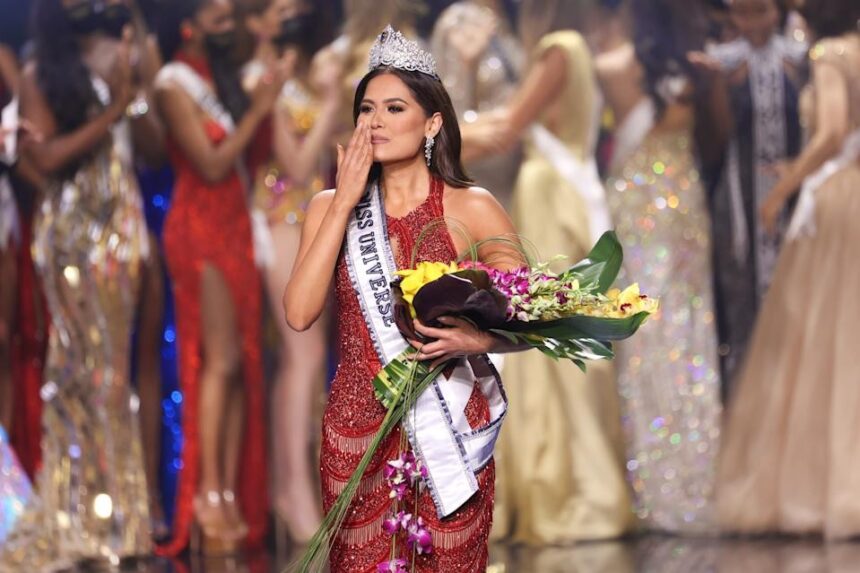An investigation into the unsolicited call letters, financial burdens, and contested fairness of a popular youth pageant system
When an official-looking letter arrives announcing “Your daughter has been selected” for a prestigious pageant opportunity, many parents experience a moment of pride. Each year, thousands of families receive such invitations from National American Miss (NAM), one of America’s largest pageant systems for girls and young women. But as online reviews and consumer complaints mount, many recipients are asking a simple question: Is this legitimate, or just an elaborate scheme to separate families from their money?
With a concerning 2.3-star rating from 142 reviews—61% negative—NAM faces significant scrutiny from past participants and industry observers. This investigation examines the organization’s practices, from its widespread mail recruitment to competition integrity concerns, to help families make informed decisions.
The Mass-Mailing Strategy of National American Miss
The journey into NAM’s world often begins with an unexpected letter in the mail. “Your daughter has been selected as a possible candidate who may enjoy acting, modeling, or learning stage techniques,” reads the typical invitation. For many parents, this personalized outreach suggests their child has been specifically chosen for her unique qualities.
Yet reviews reveal a disturbing pattern. One recipient in Lake Forest, Illinois reported, “Received mail for my daughter. Shredded letter. Scam, scam, scam. BTW, it says it is for girls 4-20. My daughter is 26.”
This experience isn’t unique. Numerous recipients report receiving personalized invitations for daughters who:
- Don’t exist
- Are well beyond the eligible age range
- Have never expressed interest in pageantry
- Don’t live at the address (or even in the state) listed
One Missouri resident questioned: “I Do not have a daughter. Received a letter stating that my daughter has been selected as a possible candidate… Is this a scam? Are they trying to traffic my nonexistent daughter?”
Another reviewer provided a more troubling assessment: “Definite scam. My proof. We got the same letter. We don’t even have a daughter. Three different unrelated adults at this address. Not even one has ANY child.”
NAM defenders counter that these letters result from referral cards filled out by current contestants. “At each pageant every girl competing is asked to fill out referral cards (legal name, address, etc) and they send out the ‘you’ve been selected cards’ based on who is referred,” explained one supporter.
However, the volume and randomness of mailings suggest a mass-marketing approach rather than targeted recruitment. This creates an initial impression of exclusivity that many families later discover was misleading.
The Financial Reality: Entry Fee Is Just the Beginning
For families who proceed past the invitation stage, the financial commitment quickly escalates beyond the advertised entry fee of approximately $550-650.
A contestant’s parent from Missouri detailed the unexpected costs: “My daughter’s first year participating cost $650.00 to enter, which doesn’t include anything. We still had to pay $35 for a production shirt which should have been included, and the crash course was an extra $25 for them to practice, which should have been free for all.”
The review continued with additional expenses: “Three roses cost $20 when we could have gotten them cheaper at the store… The optional contest cost $100 or more, and if you’re not in any of that, you might not be in the top ten. They’re looking for people who spend money.”
Based on multiple reviews, a typical NAM participant might expect to spend:
| Expense Category | Typical Cost Range |
|---|---|
| Base Entry Fee | $550-650 |
| Required Production Items | $35-100 |
| Optional Competitions | $100-500+ (per optional) |
| Professional Coaching | $200-1000+ |
| Evening Gown | $500-5000+ |
| Accommodations | $200+ per night |
| Travel Expenses | Varies by location |
| Photography/Accessories | $100-500+ |
A state title winner from 2019 offered this sobering assessment: “It’s not just the outrageous fees that get you: don’t expect to even place at nationals without a $5,000+ gown or paying thousands for coaching.”
For many families, the accumulating costs create financial strain with questionable return on investment. As one Charlotte, North Carolina parent bluntly stated: “Only for the Rich!!! So don’t waste your time or money, unless you are Rich and can put money into it, then your child will go far.”
Is the Competition Rigged? Scam Allegations of Predetermined Winners
Perhaps the most serious accusations concern the integrity of the competitions themselves. Multiple participants and observers have alleged that outcomes appear predetermined, with contestants’ financial investments potentially influencing results.
“We have been to NAM a few times and always had a great time. However, this year, it has changed,” wrote one reviewer who identified herself as a repeat participant. “I was shocked when additional judges were added at the final show, girls competing not in the program, winners without submitted resumes, winners who tripped during formal wear, or botched personal intros. It was clear the winners were chosen before we even competed.”
The review continued with a particularly troubling claim: “Now I find out there is a separate selection committee that instructs the judges on who to pick.”
Similar sentiments appear repeatedly in reviews:
- “Everytime the same 4-5 familys are crowned at each level”
- “The more optional aka $100 or more pageants you enter, the more chances of winning”
- “There is documentation that the US American Miss owners Courtney and Kimberly has a history of changing the results”
One New Jersey participant stated: “Please do not waste your time and money for NAM. Everytime the same 4-5 familys are crowned at each level. My daughter left NAM for this reason. There is no chance for anyone else to win.”
These allegations are strongly contested by some within the pageant community. A claimed NAM judge responded: “I would not judge a pageant multiple times if I thought anything dirty was going on… As for ridiculous claims of girls who do optionals win, that is simply untrue. The overall panel of judges has absolutely no way of knowing which girls did or did not do optionals.”
Refund Policies: When Medical Emergencies Aren’t Enough
Many complaints focus on NAM’s refund policies, which reviewers describe as inflexible even in extraordinary circumstances.
A Missouri mother shared: “They canceled the pageant during the pandemic. We paid registration fees and a talent fee. The day the pageant was canceled my daughter paid the talent fee. NAM knew they were canceling the pageant and took several hundred dollars from a full time college freshman who was working 2 jobs to pay for school.”
Another participant dealing with serious injuries pleaded: “I paid for my first nights stay at the hotel on October 12th for $181.00. Since doing so, I fell and broke my arm 9/23/24. Then 6 days later on 9/29 I fell and broke my leg, which had surgery with 14 staples. I am currently in rehab and not sure when I be released… I was wondering since under the circumstances if you would consider refunding my money.”
The organization’s apparently strict non-refundable policies have left many families feeling exploited during already difficult circumstances.
The Defenders’ Perspective: Skills That Last a Lifetime
Despite the volume of complaints, NAM has vocal supporters who believe the experience provides valuable life skills that justify the investment.
“National American Miss – Such a fabulous pageant system, I really do not understand these complaint comments,” wrote one enthusiastic participant. “I made 5 new bffs, won most of my optional contests and placed 2nd runner up my first time at NAM and first ever pageant.”
Another supporter elaborated on long-term benefits: “I am 23 years old and have interviewed for around 6/7 jobs in my lifetime. Whether it was at a local boutique at 16 or at a billion-dollar company for a job I didn’t qualify for on paper… I have gotten every single job I have interviewed for. I thank National American Miss for these life skills.”
Supporters highlight benefits including:
- Confidence building
- Public speaking development
- Interview preparation
- Forming lasting friendships
- Community service opportunities
- Personal growth
Some defenders suggest negative reviews come primarily from disappointed contestants: “A lot of these reviews seem to be from upset parents of children who didn’t win. Investing into something and not getting the desired outcome can be frustrating.”
Making an Informed Decision: Is NAM Right for Your Child?
For families considering NAM or similar pageant systems, industry experts and former participants suggest asking these questions:
- What is the total expected investment? Request a comprehensive breakdown of required and optional expenses.
- What is the realistic value of winning? Research how recognized the title is outside pageant circles.
- What is your child’s primary goal? If skill development is the focus rather than winning, consider whether less expensive alternatives exist.
- Do you have experience with pageants? NAM may not be ideal for first-time participants, according to experienced pageant families.
- Can you afford the investment without financial strain? The consensus indicates that meaningful participation requires substantial resources.
A former state title holder offered this perspective: “When I was competing, it was all about being yourself and making a difference in your community… Now it’s about who can post once a week on the national queen Instagram… I put my state title on my resume under accomplishments, and the number of times I’ve been asked, ‘what the hell is NAM?’ was embarrassing.”
Final Verdict: Is National American Miss Legit Business or a Pageant Scam?
After examining hundreds of reviews and complaints, the answer to whether NAM is a “scam” appears nuanced. While NAM operates as a legal business providing actual pageant experiences, concerns about marketing tactics, hidden costs, and competition integrity suggest legitimate reasons for consumer caution.
NAM isn’t a complete fabrication—competitions occur, winners are crowned, and some participants report positive experiences. However, many families feel misled about the selection process, unprepared for escalating costs, and disappointed by what they perceive as predetermined outcomes.
Perhaps the most balanced assessment comes from a former participant: “Don’t go into NAM with a goal of winning. Go into it to improve interview skills, gain confidence, make friends, or inspire others. It is up to you what you get out of it.”
For families who receive those “Your daughter has been selected” letters, proper research before responding may save considerable money and potential disappointment. Starting with smaller, less expensive pageants might provide similar benefits without the significant financial commitment NAM appears to require.
In the end, each family must weigh the potential benefits against the documented concerns to determine if the National American Miss experience aligns with their values, goals, and resources.









































